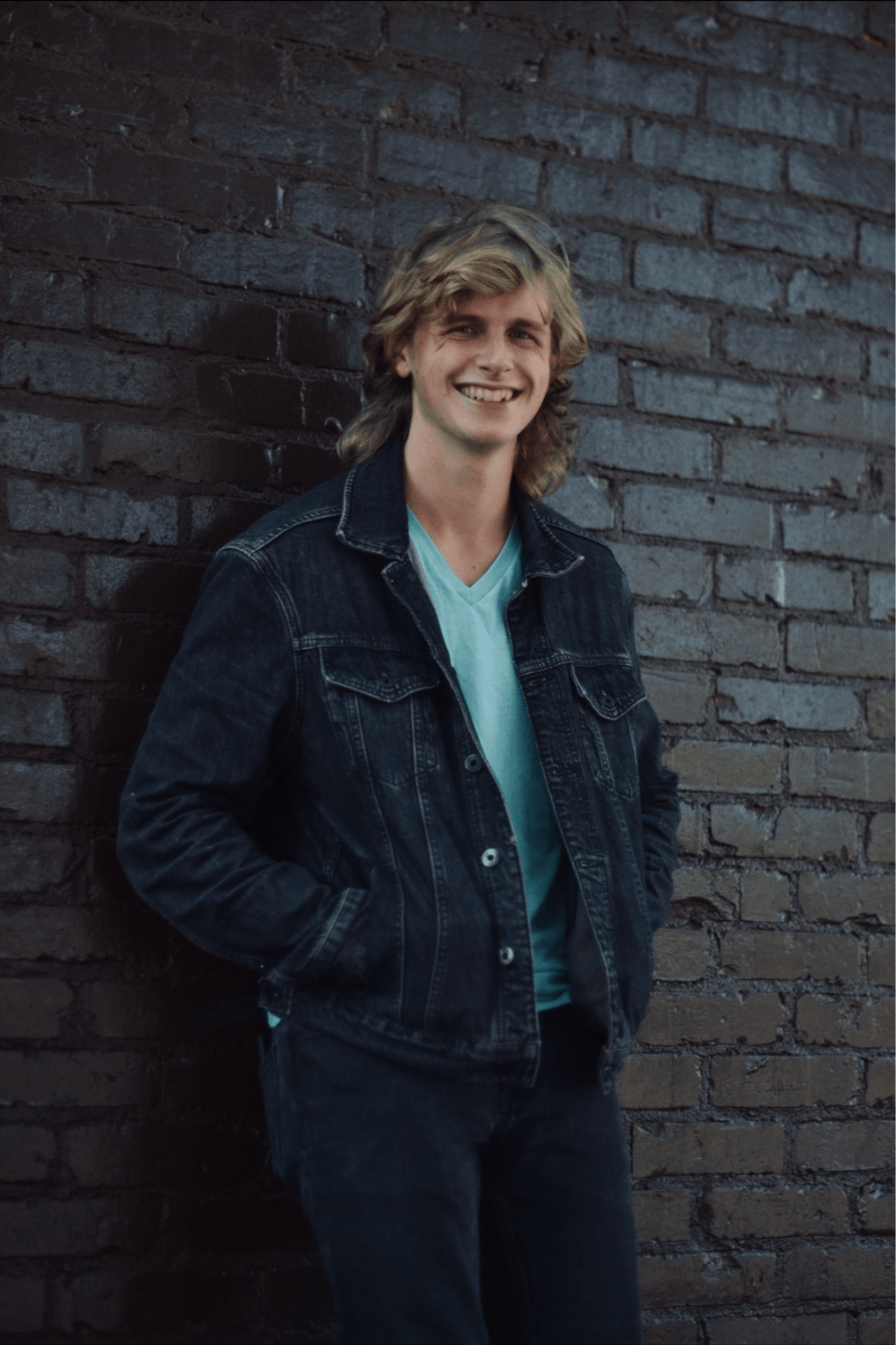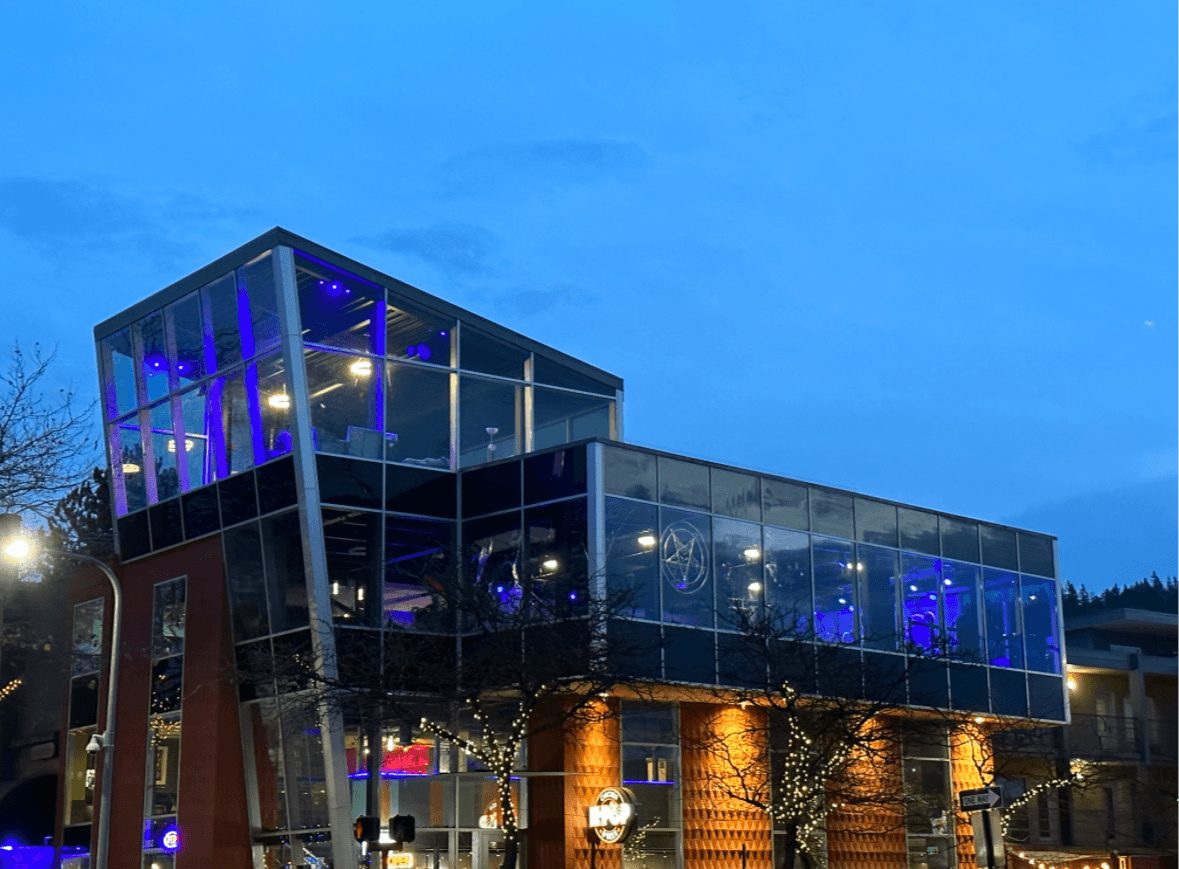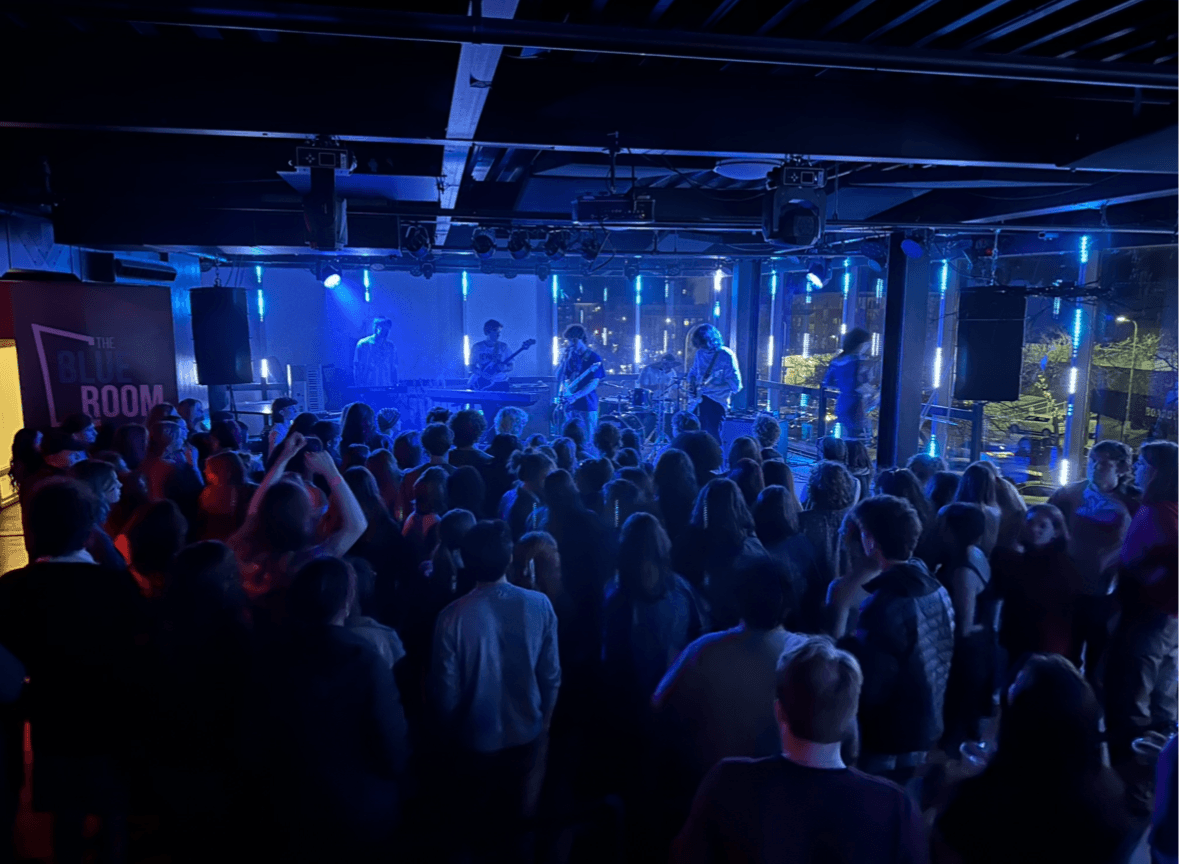We were lucky to catch up with Martijn Wall recently and have shared our conversation below.
Martijn, thanks for taking the time to share your stories with us today Before we get into specifics, let’s talk about success more generally. What do you think it takes to be successful?
When I was young, someone told me “success is in the eye of the beholder”, but it became another one of those sayings that I heard but never actually learned until I was older, similar to “knowing is half the battle” or “don’t eat ice cream for breakfast.” With this in mind, to answer what it takes to be successful you have to first find what it takes for you to live a happy and fulfilled life. Accepting that this is going to look slightly different for every single person is part of the process, and focusing on what makes you uniquely successful without comparing your version of success to someone else’s is important to find this acceptance.
I feel like we can lose sight of what ultimately makes us feel happy and fulfilled as we grow and are met with new experiences, perspectives and influences. Staying honest with yourself throughout this growth is important as what dictates your happiness and fulfillment is ever-evolving, and shaping your life around something that doesn’t make you happy is an easy trap to fall into in this day and age! My personal version of success is being able to say that you do the things that make you happy every single day of your life.
I learned early on about myself that life to me is about living in shared experiences. Sharing this life with other people brings me so much joy; looking over at a total stranger in the mosh pit of a concert and sharing a smile, teaching your younger sibling a song that you learned at their age, sharing a story from the past with someone you met in the future, you get the picture! I also learned that making music, traveling, cooking and spending time with family and friends are the things that make me happiest. A lot of people’s definitions of success revolve around financial success, and in my opinion this can really cloud the fulfillment aspect of success, as it’s really easy to point to your bank account when faced with the question of whether or not you are a successful person. But at the end of the day, I just ask myself would I rather have money or memories?
My personal version of success helped me navigate my career path as well. I’ve worked many jobs where I made a decent wage and only worked 6-8 hours a day, 4-5 days a week. However I never really liked the work I did, and I never left work feeling fulfilled or like I had a purpose. On the contrary, when I was playing the oboe in college or starting up my current business and making no money, I worked 10-14 hours a day 6-7 days a week, and though I was exhausted I always went to bed with a smile on my face, excited for the next day.
From this, I learned that for me, being financially successful didn’t dictate my success and I could die with less than a dollar in my bank account like Billie Holiday. As long as I prioritized pursuing a career that made me feel fulfilled, I would consider myself successful. This became challenging as the more I worked the less time I had to travel, cook, make music and spend time with family and friends. However I noticed that my quality of life when doing those things had increased ten-fold from the time I started pursuing a career that made me happy rather than a career that traded that happiness for financial security. This showed me that in my current state, I had found success!
To answer the question much more simply, success first and foremost takes hard work and belief. The more dedicated and consistent you are towards your work and your belief, the quicker you will find your personal version of success!


Awesome – so before we get into the rest of our questions, can you briefly introduce yourself to our readers.
One thing that has always been true about me is that I’m a musician. The core of my being, brand, and businesses comes from being a musician, it is the most important part of who I am, and the driving force of my motivation.
I started playing piano when I was very young. Though never formally trained, there was an upright piano in our house and I would constantly play around and listen to my family members take turns playing it during the holidays. I picked up the recorder for the first time in third grade, and fast forward to middle school I learned the clarinet, oboe, and tenor saxophone. Playing in concert band and jazz band in middle school is when the fire really started, as I realized a deep love for playing and learning about music. This led me to high school where I continued playing tenor saxophone in jazz band and oboe in the concert band. The routine and rigor of the jazz group really inspired me and kept me driven, leading to us win the Reno Jazz Festival among other great experiences that kept the fire burning. I was starting to see the process of practicing leading to payoff, and how a good work ethic rewards itself.
Playing in high school is also where I started being faced with issues around my determination to play music as my main career. Musicians make no money!
So as I was having these high flying musical moments, I was also faced with questions like “but when are you going to get a real job” and “okay, but what do you actually want to study in college?” This led to a period of depression for me, as my environment was showing me that music wasn’t valued in the same way as other “important” jobs, and therefore a career path in musical performance would be extremely challenging post-high school. At that point I was pretty lost and wasn’t even planning on going to college, I was thinking about joining the coast guard. However I did get some professional opportunities in high school on oboe, and this inspired me enough to take the next step and audition for a spot in the oboe performance studio at Western Washington University with the hope of getting a scholarship. My oboe professor at the time, Julie Fay, was a huge part of keeping me motivated through this process, so I owe her a huge thank you!
Before my senior year of high school, I didn’t even realize that being a musical performance major was an option in college, and a year later there I was, auditioning and winning a spot in the University’s orchestra! Playing oboe in college and as a freelance professional at the same time taught me everything that I carry with me today about work ethic, discipline, and professionalism. I was in the routine of getting up at 6am, being in the studio by 7am, and not leaving the building until 7pm, maybe 5-6 days a week. This rigor paid off big, as by my junior year I was top of the studio, was representing WWU in masterclasses, competitions, and performing professionally alongside my professor and other 10-20 year veterans. As I was so thrilled that I had found my foot in the door of a musical performance career, my attitude was all about having fun, and enjoying the experience!
At this point as a Junior in college, my career was gaining traction with regular gigs as a part of the Bellingham Symphony Orchestra outreach group and substitute, Pacific Northwest Opera, misc. church service gigs, and a Europe tour with the college orchestra on the horizon (playing in Vienna on my 21st birthday!). However right as all the years of hard work were finally culminating, this chapter of my life came to a crushing end as the pandemic took over the world. I was left without a job for the foreseeable future, taking oboe lessons over latency-riddled zoom calls, stuck in a room with no way to know when it would all be over.
This is when the most pivotal moment of my life up until this point happened, because I was faced with having to start from scratch after spending 7 years building towards a goal that was ultimately taken away by forces out of my control. I was angry, sad, felt betrayed, and was pretty much ready to give up. So I did! I remember sitting in my room wondering what I was going to do with my life, and having completely no idea. That’s when music found me again, in a place of complete defeat, music was what brought me out of it.
I started writing lyrics. One song became two, became five, which became a shitty album recorded in a studio apartment. One shitty album became a slightly better album recorded in someone else’s studio apartment. I had started making my own music and didn’t look back, I was going to use the motivation the defeat gave me to take this next chapter as far as I possibly could. With a wry smile, I realized I had slightly better odds to make it as an independent hip hop artist than as an oboist.
When I approached making hip hop music, I immediately saw it as a much more collaborative and community oriented way of making music, far away from sitting in a practice room by yourself for 5-6 hours a day. As an extrovert, I really liked the collaborative way of making music, and my network grew a lot over the next year as I made songs with as many local artists as I could, because it was fun!
The time came where I wanted to start playing shows, and this is where the idea and inspiration first sparked for my current business. I immediately noticed there was an imbalance of opportunity offered by venues to local, young, and beginner/intermediate level performers. A lot of extremely talented musicians were quitting after their first or second year because no matter how good or creative their music was, there was little opportunity given by the venues in my town to perform. I didn’t see equal opportunity being given in most venues in the city, and I was shocked by how much potential talent was being left out there simply because of the lack of opportunity!
This is when I started HodWall Productions LLC with a colleague of mine – an event production company with a community oriented mission of showcasing local talent in a unique way. Our goal was to put as much focus on the talent that was around us, and not have it be pushed to the side by things seen commonly in the entertainment industry such as conglomerate talent agencies, binge drinking culture, or favoritism and nepotism. We organized three or four ticketed concerts that showcased different genres of music, all at different venues, and were pretty happy with the turnouts and the community’s response to the mission. Around this time, by sheer luck, we came across the building that is now The Blue Room, and we were faced with an offer to sign a commercial lease to take over that unit and operate our LLC in a brick and mortar location, rather than renting out venues and doing one offs.
To make a long story short, we took the leap and signed the lease. We tried to come up with a business model, but there were so many variables that it became a non-factor. Our plan was simply believing in the power of music, and the power of community. This may sound crazy, as you can’t pay the bills with the power of music, however I just saw a unique opportunity to offer a different perspective into community performing arts. One that was inclusive, accessible and most importantly, FUN!
When I signed the first lease for the Blue Room, I had $700 in my savings account, and maybe $50 in my checking account. I went “all-in” on the idea of community and quit my job, moved out of my apartment and couch surfed for the first six months of operating the venue. The following three years of my life were the craziest years I’ve ever experienced, with the lowest lows and the highest highs. However, looking back on it at this point, the whole story has shown me something beautiful, which is that belief, love, and connection are more powerful than doubt, fear, and hate.
At this point I feel like I’m right in the middle of the entire story, with a lot to reflect on and a lot to prepare for. I’m confident that as long as I hold onto the power that music has shown me, and people’s response to being loved and believed in, we have a lot on the horizon! Big shoutout to my mom, Laura Wall, for helping guide me through this entire experience, and supporting me through everything even when we seemed to be dead in the water. My love and thanks goes out to her!


Any advice for managing a team?
Team building and leadership are two things that I love the most, and am continually inspired by! For me, the leadership position of being a team manager is the most critical role in a team, but that doesn’t make it more important than any of the other roles. The whole point of a team is to execute a collective goal, and the motivation behind completing the goal shouldn’t be about who gets the individual credit.
Leading is the ultimate service job. Managing a team means putting the needs of your team ahead of your own, and making sure that everyone on your team feels heard and responsible for the team result within their role.
Maintaining high morale is very easy when everything is smooth sailing, and gets harder and harder the more difficult the process of reaching your team goal becomes. I think it’s important to build a process for dealing with difficult situations into your team culture and attitude. In other words, expect the best but prepare for the worst. In my opinion, maintaining high morale comes from having deep personal connections between members of your team, and having a collective understanding of the goal and the action plan for any situation that could arise. It’s also simpler than this, and comes down to making sure the little things are taken care of – is everyone sleeping, eating and hydrating? The job of a team manager can be ensuring that the little things here are taken care of. I also find humor to be a great diffuser of tension in low morale situations!
Most importantly, a team manager needs to keep the collective team belief alive. The second a member of the team stops believing in the collective goal, or process to achieve that goal, a team becomes a group of individuals, which is a very different thing.


How’d you build such a strong reputation within your market?
This will be my shortest answer! Haha
Building reputation for us was all about doing good business consistently over time. Good business to us means continuing your direction by having all of your decision making stem from your mission, being honest and transparent in every situation, and communicating as efficiently and effectively as your possibly can.
If you’re able to do all these things consistently, without making mistakes, and you don’t run out of cash, after 2-3 years you will have an excellent reputation within your market!
Contact Info:
- Website: https://www.blueroombham.com
- Instagram: @blueroombham , @martii_mc_fly
- Facebook: https://www.facebook.com/blueroombham/


Image Credits
Credit:
@punk.polaroids
@peterdemonte


